The first weeks of May are always a hectic time around Tufts campus. As the weather gets warmer and classes end, students are busy with finals, commencement, and summer plans. At the Office of Sustainability, this means that it’s time to start helping with move-out! Every year, our goal is to promote easy, sustainable move out practices by providing donation stations across campus. Read on to learn about why and how we make sustainable move-out possible at Tufts!
Why does sustainable move-out matter?

By taking the time to recycle, reuse, and donate unwanted items during move-out, you can help reduce your impact on the environment by diverting items from the landfill and helping them find a new home. In 2021, we collected 9 tons of donations from students, meaning we kept 9 tons of move-out waste from going straight to the landfills!
Even better, our non-landfill disposal options help others at Tufts and beyond because almost all of the donations we receive from move out will go to students at the FIRST center, future Jumbos at our Back to School Sale this fall, or to other students and people in need of quality supplies through our other donation partnerships.
How do I donate my items?
We have three donation stations set up across campus: Haskell, Houston, and Hill Hall. Until May 23rd, you can drop off gently used unneeded items at your closest donation site, where they will be sorted by our staff and prepped for donation!
Where will your donations go?
Dorm room items: sheets, blankets, fans, mirrors, etc.
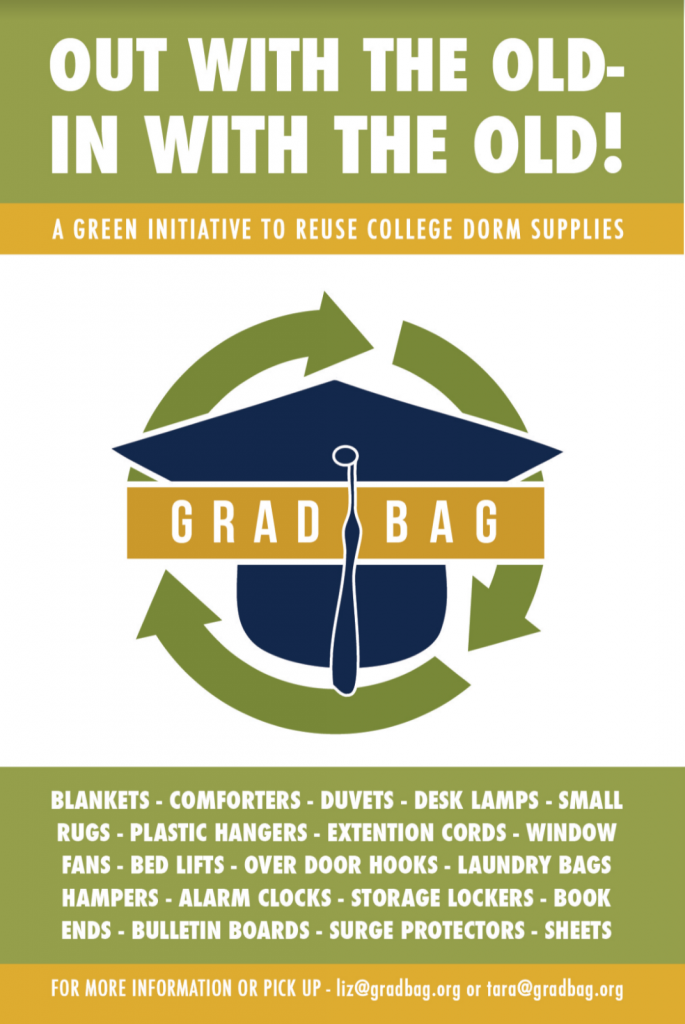
- This year we are excited to be partnering with Grad Bag, an organization that accepts donations from college students, cleans them, and redistributes them back to students in need.
- A portion of these donations will go to incoming students supported by the FIRST Center. In this way, your donation of lightly used sheets and dorm essentials can directly make an impact on your peers.
- Many of your donations will go towards our Back to School Sale, which we will be hosting this fall for the first time since the pandemic began! These items are given away for free or sold for very low prices- all proceeds go to the Office of Sustainability to help continue sustainable programming.
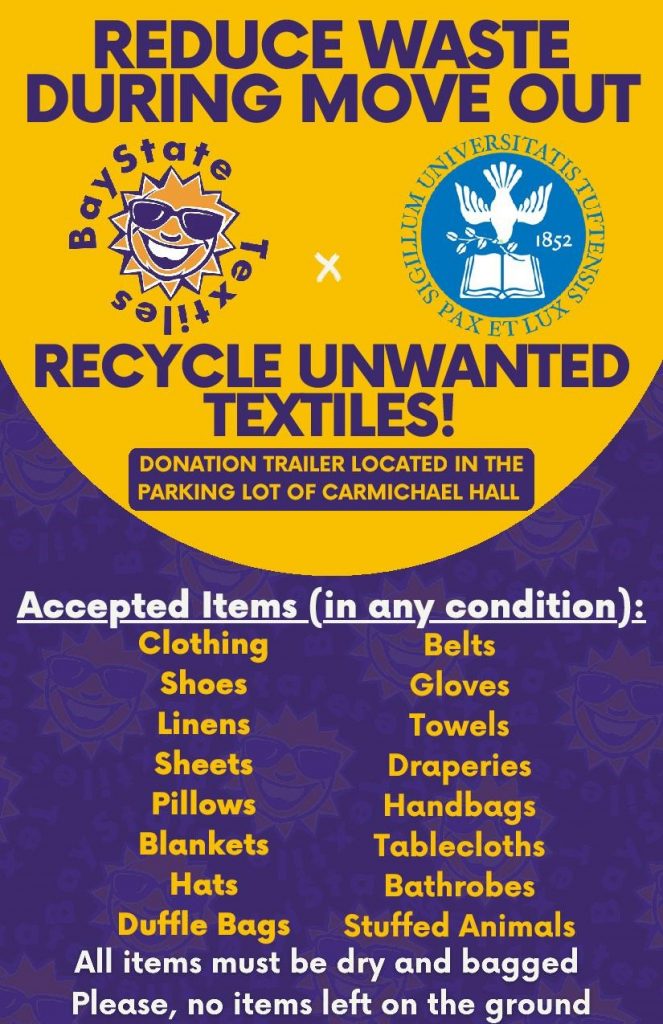
Unwanted clothing and textiles
- We work with Bay State Textiles to reuse and repurpose unwanted fabrics and clothing items instead of letting them end up in the landfill.
Electronics
- We are offering specialty recycling at each of our donation stations. Bring your batteries, ink & toner, and electronics when you donate your items. Find out more about this service here, available at select locations on campus year-round.
Crutches, Braces, and Splints
- Lightly used crutches, braces, and splints will be donated to the new department of Occupational Health Services.
As the school year comes to a close and we begin the move out process, consider making your spring cleaning “green” by donating your unwanted items at one of our stations!
For a complete list of donatable and recyclable items, visit our Move Out Page.

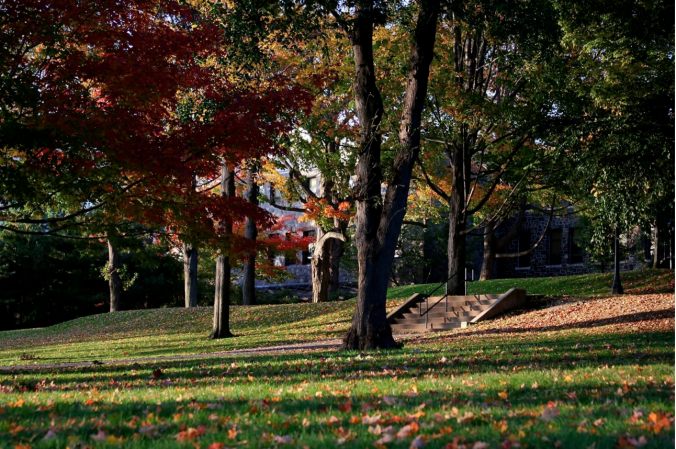
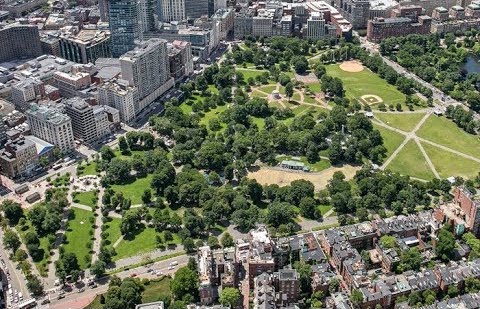

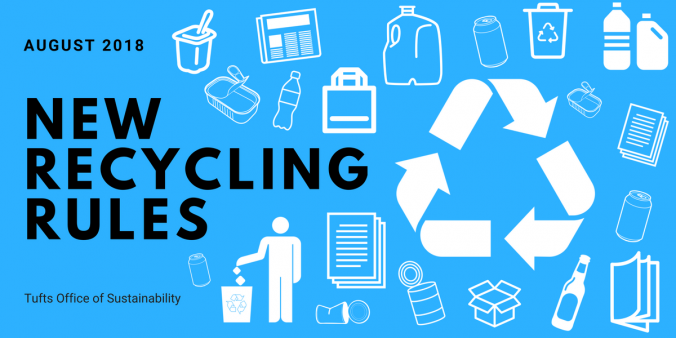
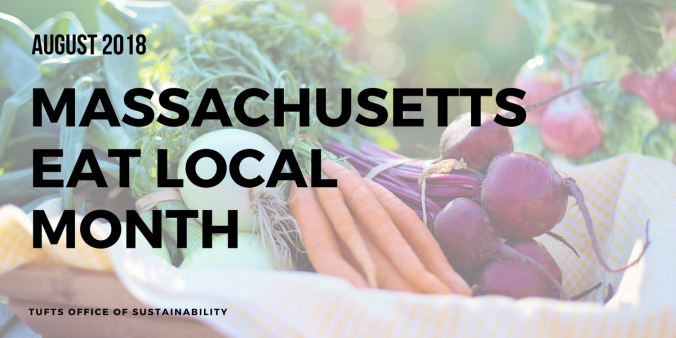
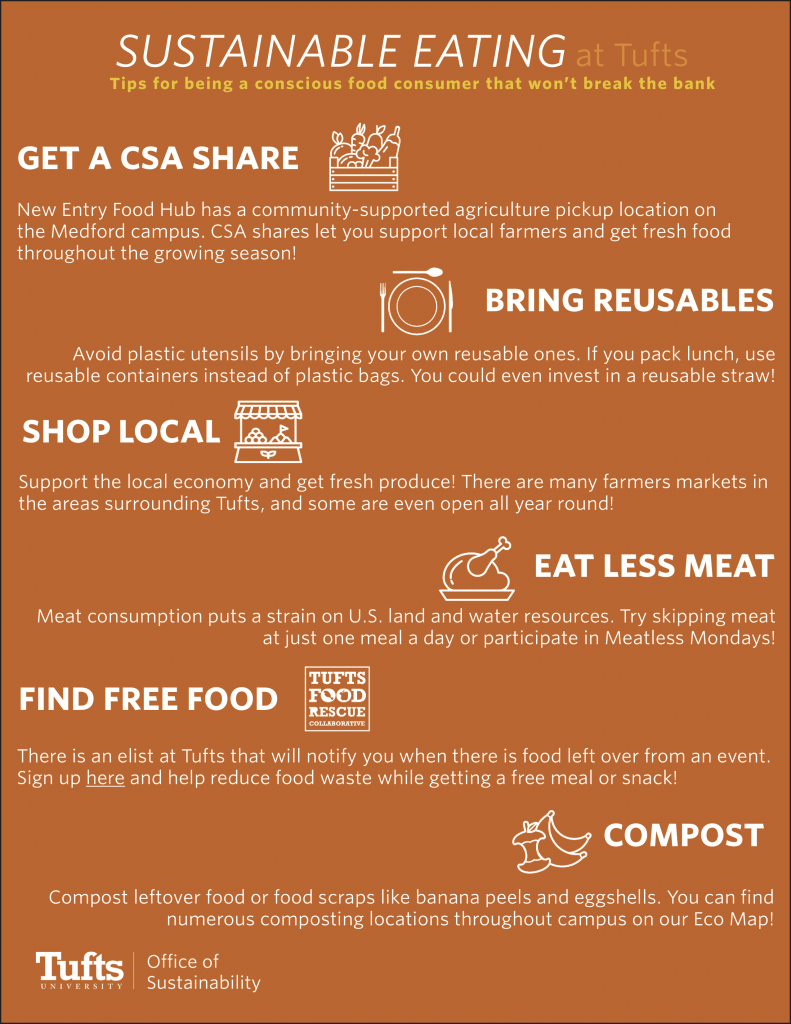
Find Us On Social Media!